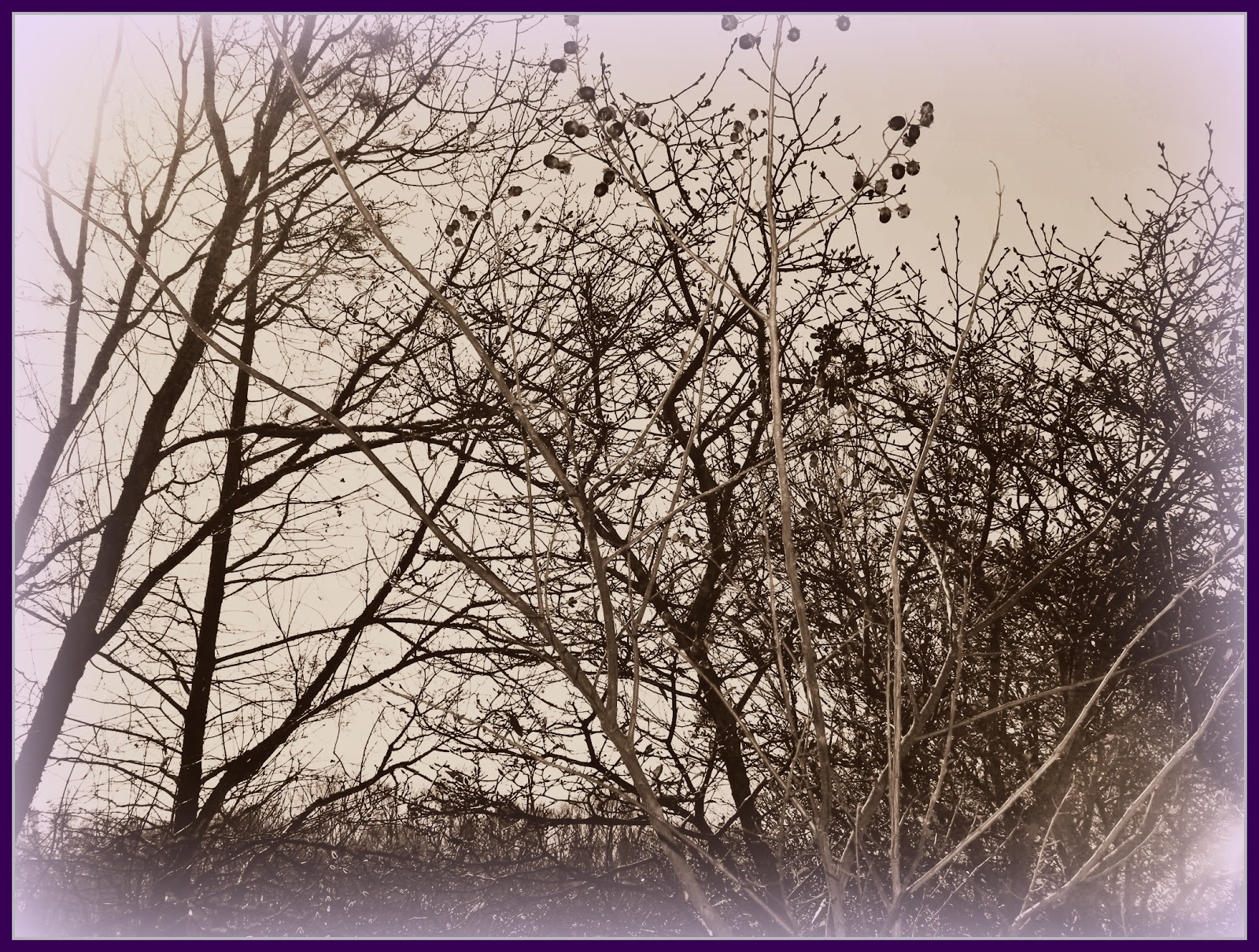29

Approach of Winter
by William Carlos Williams
The half-stripped trees
struck by a wind together,
bending all,
the leaves flutter dryly,
and refuse to let go
or driven like hail
stream bitterly out to one side
and fall
where the salvias, hard carmine--
like no leaf that ever was--
edge the bare garden.
I am a consummate consumer of the written word~poem or prose, fiction or nonfiction. I'm like Sherlock Holmes~constantly noticing those unusual sound combinations and odd spellings that make for an interesting gem of a word.
Besides the overall feeling of this poem, I'm impressed with the word "half-stripped"; it implies tenacity (another great word)~the tree seems to know that winter is on its way bringing with it the harsh reality that all will soon be lost.
As a lesson, I would first ask students to tell me how they know that this is a poem~I'll probably get answers like "it looks like a poem" or "it's shaped like a poem." Correct answers, but I'm looking for something deeper~a greater complexity you might say. I want students to notice the meaning of this short poem~to understand that poets have something to say, but they say it in a different way.
After the students discuss how they know that this is a poem, we will "break it down"~look at the commas, the dashes~what do they signify? We'll also identify words that we don't know~salvia and carmine. I'll also ask the students to find the prepositional phrase~what word does it modify? So that makes it what kind of phrase? Hopefully they'll say adverb phrase. I've taught small lessons on infinitives, so I'll ask them to find the infinitive in this poem. Once I remind them that any type of comparison is an analogy, I'll ask them to find the simile. What is the imagery that the poet is striving for by using that simile? Finally, I'll ask them to look at the word "edge"~it is a noun, but here it is being used as a verb.
In order to connect this to writing, I'll have the students write their own poem, mimicking the style of "Approach to Winter".
Signs of Fall
The dull sound of the blower,
roaring outside my window,
distracting me,
the sound grows louder
as it comes near the closed window;
writing poetry cannot compare
to the steady noise
that deafens any
creative muse.
The beauty of this short and sweet lesson is that by "breaking it down", I've made it less sinister and dangerous. I show them that I can do this on a lazy Sunday afternoon with an old leaf blower buzzing outside the window.
Mrs. Etheridge



Comments
Post a Comment